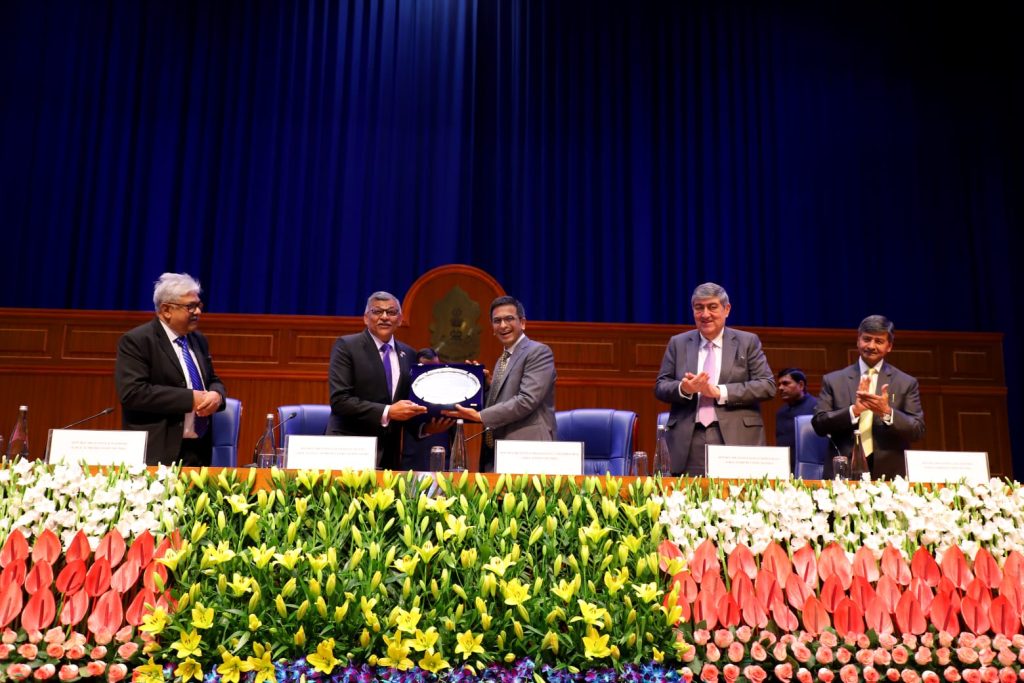Chief Justice of India Justice D.Y. Chandrachud on Saturday said the Supreme Court has been using its jurisdiction to make the rule of law a reality for the marginalised communities, as well as the poor.
Speaking at the first-ever celebration of Supreme Court’s Foundation Day, the CJI said the Apex Court has provided a space for citizens to converse with the State on equal terms by diluting the requirement of locus standi through PILs.
He said the top court of the country had adopted innovative techniques to reach out to the people, especially during the times of Covid-19 pandemic. Between March 23, 2020 and October 31, 2022, the Supreme Court alone heard 3.37 lakh cases through video-conferencing. The Apex Court was currently working on a hybrid medium, he added.
The CJI said the Supreme Court was in true sense the people’s court, since it held the collective heritage of people of the country. Over the years, the workload of the Apex Court has increased.
The top court of the country deals with hundreds of cases every day. Judges and the Registry staff work tremendously hard. In the past three months, 12,108 cases were filed, while 12,471 were disposed of, he added.
In the past few years, the Supreme Court has furthered the transformative vision of the Constitution by recognising the fundamental rights, such as the right to privacy, decisional autonomy, sexual and reproductive choices, noted Justice Chandrachud.
He said no case was big or small for the court. Every matter was important as the issues of constitutional and jurisprudential importance mostly emerged during the small and routine matters involving grievances of citizens.
In attending to such grievances of citizens, the court discharged a plain constitutional duty and a plain constitutional obligation, noted the CJI.
Speaking about the Foundation Day of the Supreme Court, the CJI said the Apex Court came into being on January 28, 1950, two days after India became a republic. At its inception, the top court of the country had a sanctioned strength of eight judges and it started working on a strength of six judges.
Justice Chandrachud said the first CJI, Justice Harilal Kania, had prophesied that the court would play a great role in the development of the nation. He had said that the Supreme Court would interpret and declare the law of the land in no spirit of barren legalism and interpret the Constitution as a living body.
He said in the first year itself, the Supreme Court had heard a number of cases on the protection of fundamental rights and the freedom of speech. The Chairperson of the Drafting Committee also appeared before the Apex Court in State of Bihar vs Kameshwar Singh case, added the CJI.

He said the decision to construct a building for the Supreme Court was taken in 1954. As soon as one entered the Supreme Court building, one could see the pensive statue of Mahatma Gandhi looking at the Supreme Court.
The pensive statute, its logo, its motto – Yato Dharmastato Jayah, these were not ornamental, but represented the constitutional values and aspirations of the judiciary. They served as reminders to both lawyers and judges to act righteously, added the CJI.
Justice Chandrachud quoted Supreme Court Judge Justice Bisheshwar Prasad Singh when he visited the Apex Court in 1956. Justice Singh had recalled that the proceedings were dull and solemn and only about six lawyers were there in court, said the CJI.
For the first time ever in the history of the country, the Supreme Court celebrated its Foundation Day, commemorating its 74 years of existence.
The event started with a welcome speech by Supreme Court judge Justice Sanjay Kishan Kaul. Justice Kaul traced the evolution of the Supreme Court from January 28, 1950 when it came into being. He said since its inception, the Apex Court has been cautiously supporting the nation-building process.
Chief Justice of Singapore, Justice Sundaresh Menon, was the Chief Guest on the occasion. Delivering the first annual lecture on the 73rd Foundation Day of the Supreme Court of India on ‘The Role of the Judiciary in a Changing World,’ Chief Justice Menon spoke of truth decay assaulting the justice system.
The Vote of Thanks was delivered by Supreme Court judge Justice K.M. Joseph.
Read the full speech here:
73rd-anniversary-SC

